However, let's look at the entire Forex market. On how it evolved and whether it is actually still full of threats coming from every direction.
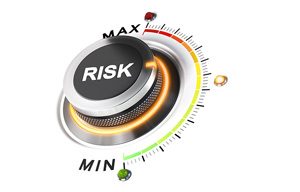 Is Forex more risky than 5 or even 10 years ago?
Is Forex more risky than 5 or even 10 years ago?
I must say with all certainty that ... NEVER . The market transformations that have taken place are huge, but the person who is only on the market of 2-3 will certainly not see them to such an extent. So what has changed?
This text is based on the private thoughts of the author based on his own, over 10-years of experience in trading on the Forex market.
Access to knowledge. The educational base is now powerful and available in many languages. 10 years ago, in Polish, you could only read the basics of the basics, and many issues were not discussed anywhere. The number of websites on this topic, and even brokers on the market who dealt with education was small. Webinars? Not those times. Only stationary trainings were available, often the more substantive ones only for the broker's clients. This involved commuting and only occasional opportunities to expand your knowledge with someone more experienced. Currently, looking at the activities of only Polish DMs, we have access to at least several training or market analysis webinars every day. Live, for free, with the possibility of talking to an experienced person.
Development of platforms and security. Provisional solutions when registering, sending documents, logging in (and generating data) to platforms and ordering payments / withdrawals. At that time, there were many companies on the market where such things "lame". Currently, clear procedures, access to the customer panel and automation of many activities that were previously performed manually, which resulted in human errors and extended waiting time for a given action, are standard.
Deceptive advertising. Seriously speaking, it's hard to find an ad that doesn't lie :-). But a good few years ago, the marketing of FX brokers was strongly based on emotions and awakening dreams - the vision of easy profit, where it was clearly shown how many percent you can earn (and even you should earn, because it is trivial), what car will be driven next year at this time if we only invest, etc. - it was even a standard. Currently, marketing is much more subdued and realistic. Brokers tempt with the features of their offer, which is to be better than the competition, and not the vision of an easy profit in a few hours.
Manipulations from brokers. 10 years ago, only brokers in the Market Maker model were present on the retail market. Back then, no one called them that, because there was simply no distinction between other categories (even though these ECNs appeared somewhere and were available only to institutions with a large wallet). This, of course, involved a conflict of interest as long as the client himself was earning money. Brokers then acted without scruples and inhibitions - they canceled orders, delayed the execution of each transaction even by parędziesiąt (!) seconds, manipulated rates, expanded spreads as they please, and even terminated contracts with profitable traders if "they had no more ideas for him".
Currently, such practices still occur sporadically, but looking at the increase in the number of investors over the years, it can be safely said that this has become a marginal phenomenon.
Reduction of fees. I remember very well how in 2008 the standard spread for brokers on the EUR / USD pair was the value of 3.0 pips, or rather 3 pips, because then no one offered quotes to 5 decimals. Spread on GBP / JPY? 9 pips was a good offer, but it was usually 10-15 pips. Are smaller fees no more chance to make a profit or at least to save money? On the most popular currency pair the reduction of fees is at least 60%, but you can find offers where the total transaction costs will be at the 0,6-0,8 pips level (73-80%).
Volatility of instruments. If we analyze the variability of the main instruments over the course of 2-5-8 year-on-year, we will clearly notice that we have a downward trend here. Higher price fluctuation is the theoretical possibility of faster loss but also greater profit. However, looking at the fact that the majority of traders are losing, the decline in volatility, or rather its calm and increased predictability / repeatability, make the FX a less risky market. During the sub-prime mortgage crisis in the US, weekend gaps for at least a year on major currency pairs of 10-50 pips were the standard. At present, it is hard to observe a gap exceeding 150 pips. Of course, the volatility may eventually wake up and as a result of the given events increase, however, despite the larger and smaller crises in the world economy, the downward trend is constantly maintained and in the near future there are still no incentives that could reverse it.
Trading tools. There are a lot of them now. In 2006, it was not bad - you could find Forex calculators on foreign sites, there was also a certain base with indicators and machines that were quickly gaining popularity. Nevertheless, compared to the current range of choices, the toolkit is powerful, and even if something is missing, there will be a huge number of people who will create it for us at an attractive price or even out of goodness of heart alone.
What the Forex market is like nie changed?
Reverse transaction. Leverage is one of the foundations of the Forex market. The leverage itself has never been risky. It was never even mandatory (brokers allow you to trade with a 1: 1 lever). It was the traders themselves who wanted to use it and usually chose the highest value that the broker allowed. Although the Polish Financial Supervision Authority has limited the financial leverage for Poles to 1: 100 (we ignore the ways to circumvent this limitation), it still plays an important function and is a value sufficient for most investors - practice shows that a small number of traders used in practice a higher leverage . There is no indication that the traders' profitability increased (or rather the losses decreased) thanks to this action. So far, I am of the opinion that at most it postponed the loss, while the ratio of profitable to loss accounts remained at a similar level as before the change.
Remember - the leverage gives you opportunities, and the risk is still the lack of knowledge about how it works, what effects it brings for our transactions and the inability to use it.
Naivety of novice traders. Not offending anyone, especially since I used to be "young and naive" myself, but it is clear that the myth of easy money on FX has survived to this day. Entering the market with real capital without special preparation - just like starting a marathon with experienced runners, when we just started training yesterday. What could be the chance of success? I remember very well how, after paying my first deposit (a trifle of USD 200 at the rate of PLN 3.00), my earnings amounted to 10% after the first week. Carried on the wings of euphoria, I quickly calculated that by the end of the year I would have almost PLN 90 on my account (000 weeks x 52% with compound interest). Of course, most of the deposit was gone after three weeks. Similar behavior can be seen in "today's beginners". At the beginning of their adventure, hardly anyone looks at Forex from the point of view of opportunities, as well as threats and real opportunities. Knowledge is constantly acquired "in the process", when the "game" with real cash is already being played.
 In what direction are the changes going?
In what direction are the changes going?
It depends from whose perspective we look at it. You can see that from the point of view of Forex brokers, the best years are behind him. The expansion of foreign companies to Poland has clearly slowed down. You can even see a regression - several large companies such as London Capital Group or Saxo Bank decided to close their offices in Warsaw this year, and PKO BP withdrew the FX offer completely. In a way, this is the effect of the saturation of the Polish market by brokers, but also of the activities of the Polish Financial Supervision Authority, which, on September 30, 2016, introduces new guidelines to shorten the brokers' chain and thus increase control over the entire market. Until the changes came into force, it is difficult to assess what their real effects will be, although there is a chance to further improve the quality of services provided by Polish brokerage houses.
Nevertheless, analyzing the current actions and current policy, we have to prepare ourselves for the introduction of further restrictions. Let us hope that although they will help to some extent and not only harm the entire industry, which has been developing so dynamically over the years.
It cannot be said that the brokers themselves are without fault here. Aggressive marketing over the years has forced regulators to introduce many restrictions and clarify certain issues. Anyway, the brokers themselves many years ago created the myth of Forex as a market where you can earn a lot quickly, easily and. The "tricks" used by some of them towards their profitable clients "resulted in" a decline in trust in these institutions and, to some extent, treating brokers as enemies rather than allies. The rebuilding of trust continues, but it must be admitted that Poles have a very distrustful nature, especially when it comes to money.





















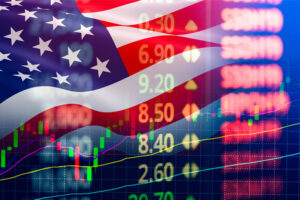
![Forex Club – Tax 9 – Settle tax on a foreign broker [Download the Application] Forex Club - Tax 9](https://forexclub.pl/wp-content/uploads/2024/02/Forex-Club-Podatek-9-184x120.jpg?v=1709046278)
![Trading View platform – solutions tailored to the needs of traders [Review] trading view review](https://forexclub.pl/wp-content/uploads/2024/03/trading-view-recenzja-184x120.jpg?v=1709558918)
![How to connect your FP Markets account to the Trading View platform [Guide] fp markets trading view](https://forexclub.pl/wp-content/uploads/2024/02/fp-markets-trading-view-184x120.jpg?v=1708677291)
![How to invest in ChatGPT and AI? Stocks and ETFs [Guide] how to invest in chatgpt and artificial intelligence](https://forexclub.pl/wp-content/uploads/2023/02/jak-inwestowac-w-chatgpt-i-sztuczna-inteligencje-184x120.jpg?v=1676364263)




![Izabela Górecka – “Success on the market depends not only on knowledge, but also on emotional stability” [Interview] Izabela Górecka - interview](https://forexclub.pl/wp-content/uploads/2024/04/Izabela-Gorecka-wywiad-184x120.jpg?v=1713870578)
![WeWork – the anatomy of the collapse of a company valued at $47 billion [WeWork, part II] wework bankruptcy story](https://forexclub.pl/wp-content/uploads/2024/04/wework-bankructwo-historia-184x120.jpg?v=1711729561)
![Adam Neumann – the man who screwed up Softbank [WeWork, part AND] adam neumann wework](https://forexclub.pl/wp-content/uploads/2024/04/adam-neumann-wework-184x120.jpg?v=1711728724)




![The most common mistakes of a beginner trader - Mr Yogi [VIDEO] Scalping - The most common mistakes of a beginner trader - VIDEO](https://forexclub.pl/wp-content/uploads/2024/03/Scalping-Najczestsze-bledy-poczatkujacego-tradera-VIDEO-184x120.jpg?v=1711601376)
![Learning patience: No position is also a position - Mr Yogi [VIDEO] Scalping - Learning patience - No position is also a position - VIDEO](https://forexclub.pl/wp-content/uploads/2024/03/Scalping-Nauka-cierpliwosci-Brak-pozycji-to-tez-pozycja-VIDEO-184x120.jpg?v=1710999249)
![When to exit a position and how to minimize losses - Mr Yogi [VIDEO] Scalping - When to exit a position and how to minimize losses - VIDEO](https://forexclub.pl/wp-content/uploads/2024/03/Scalping-Kiedy-wyjsc-z-pozycji-i-jak-minimalizowac-straty-VIDEO-184x120.jpg?v=1710336731)



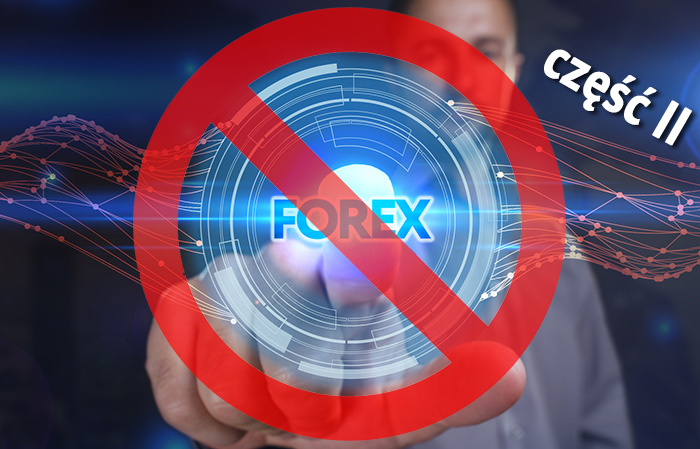
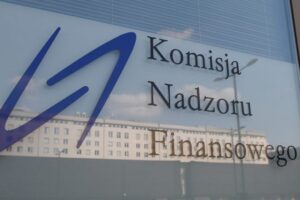

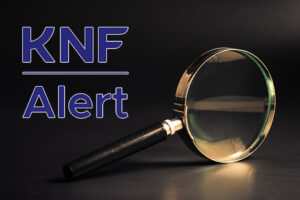












Leave a Response